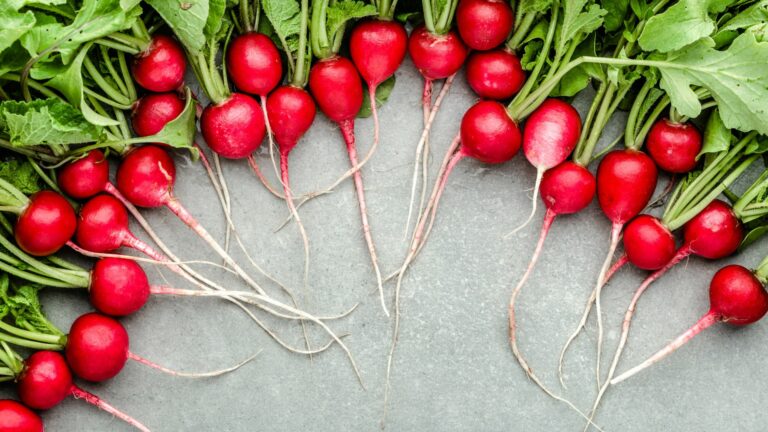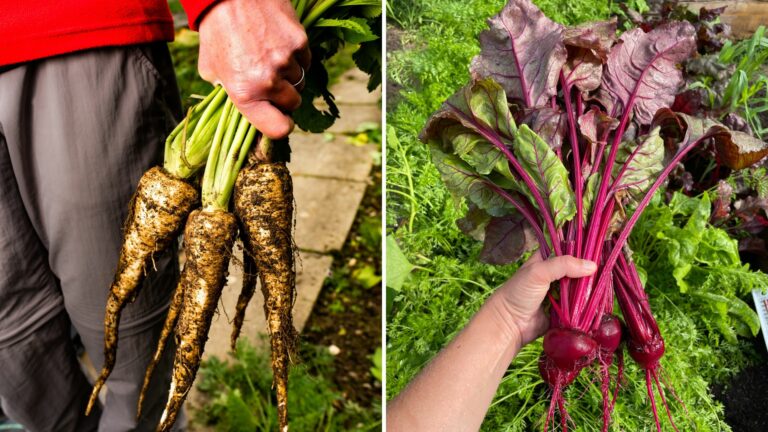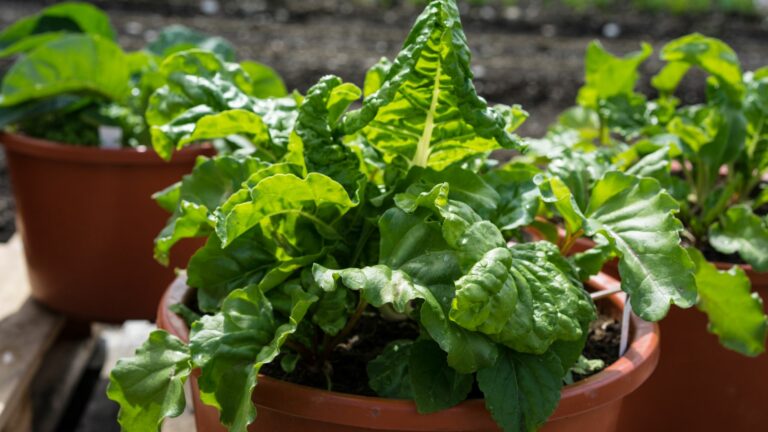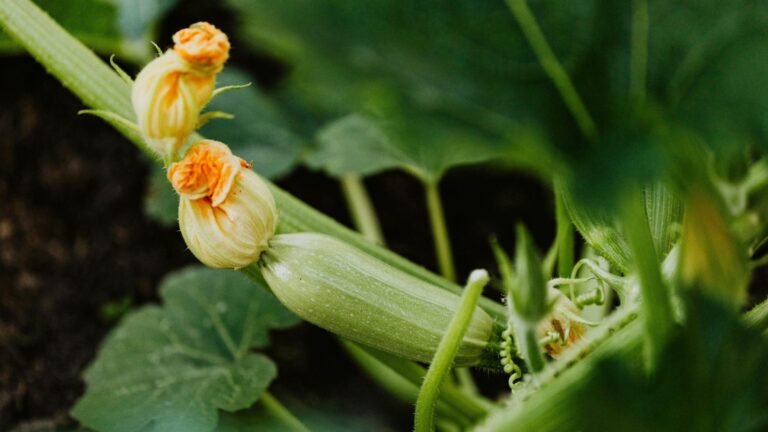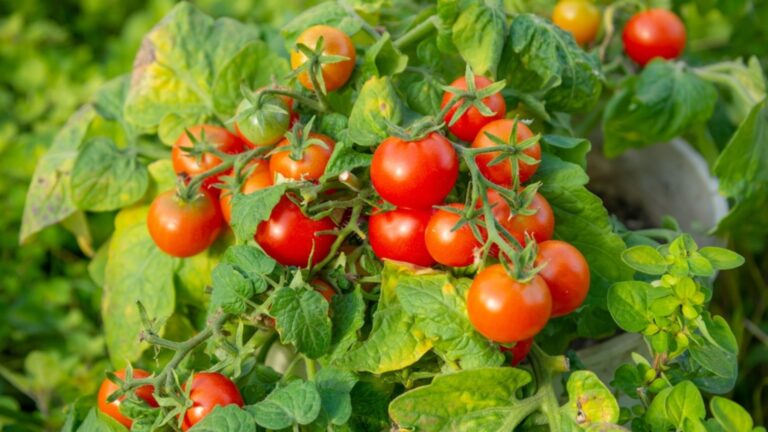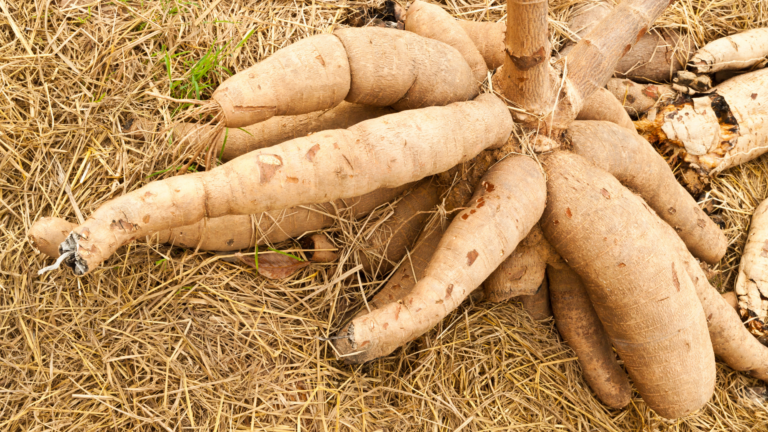Surprising Reasons Why Your Cucumbers Taste Bitter
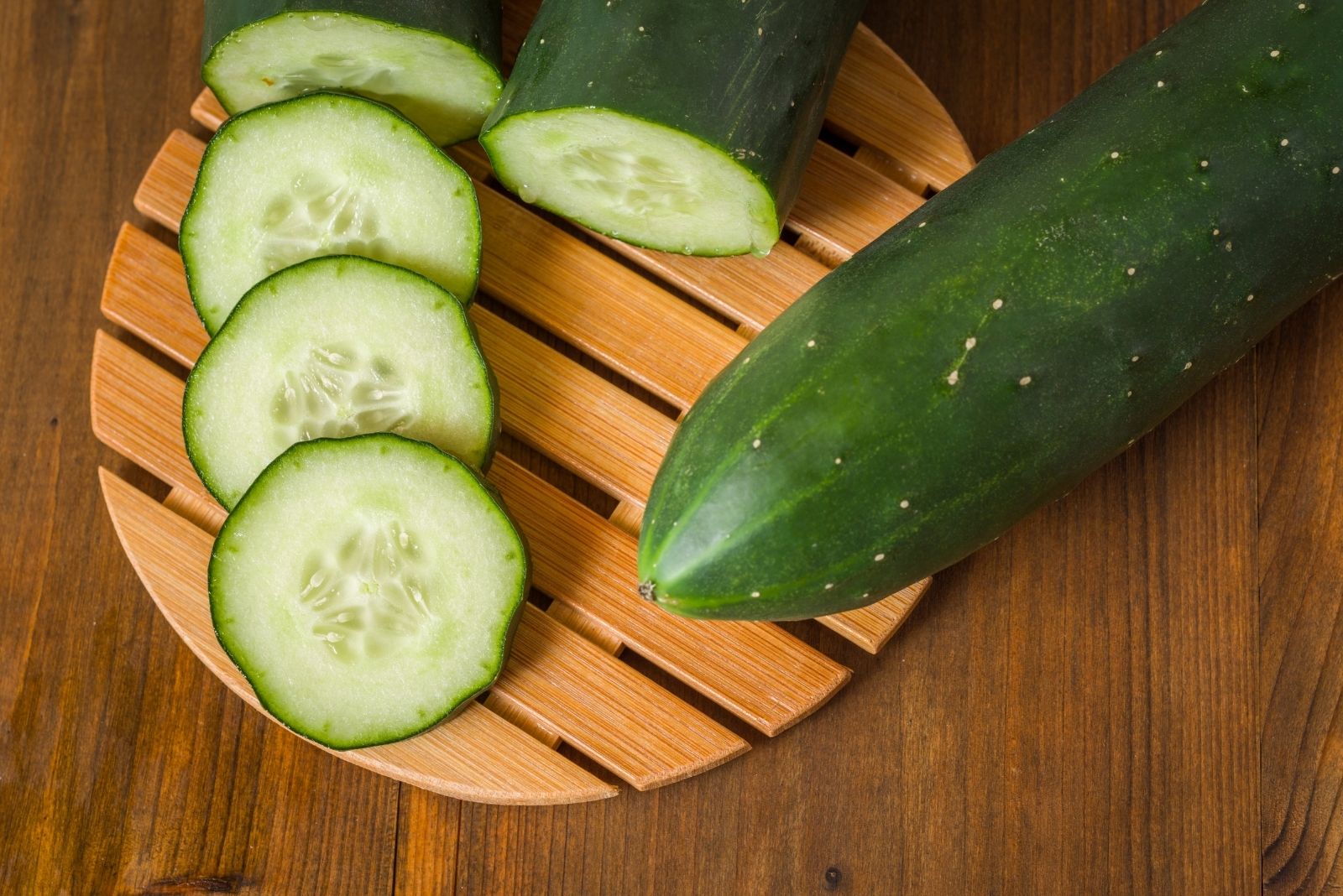
Ever bitten into a homegrown cucumber only to get a mouthful of bitterness? You’re not alone—many gardeners run into this issue each season. It’s a common frustration, but thankfully, it’s one you can usually prevent.
Bitter cucumbers often result from stress—think inconsistent watering, extreme heat, or poor soil conditions. These factors trigger the plant to produce compounds called cucurbitacins, which cause that unpleasant taste. Even a few rough days can make a big difference.
The good news? With steady care and the right growing conditions, you can keep bitterness at bay. Let’s dig into the main causes and how to grow crisp, sweet cucumbers that are snack-worthy every time.
1. Heat Stress Makes Cucumbers Defensive
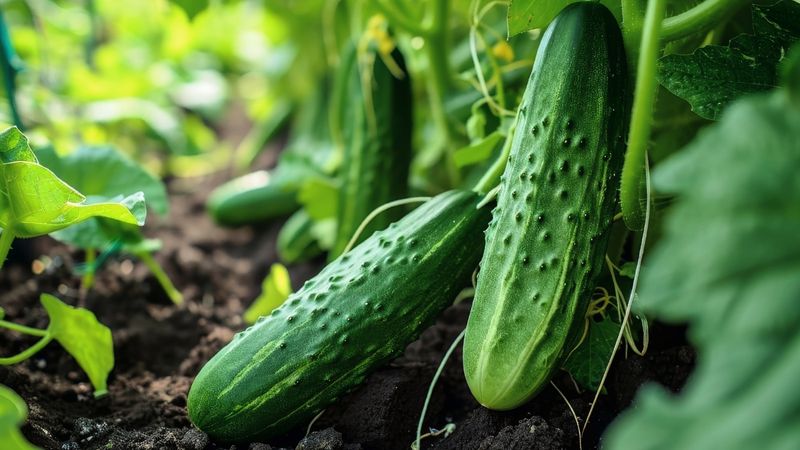
When temperatures soar, plants get stressed just like we do. The scorching summer heat triggers cucumber plants to produce more cucurbitacins – natural compounds that create that awful bitter flavor.
Last year during a heatwave, my garden cucumbers turned so bitter I couldn’t use them in my favorite tzatziki recipe. The problem is worse when temperatures stay above 85°F for extended periods.
Providing afternoon shade with row covers or planting near taller crops can help protect your cucumber plants from excessive heat and reduce bitterness significantly.
2. Inconsistent Watering Leads To Bitter Fruit
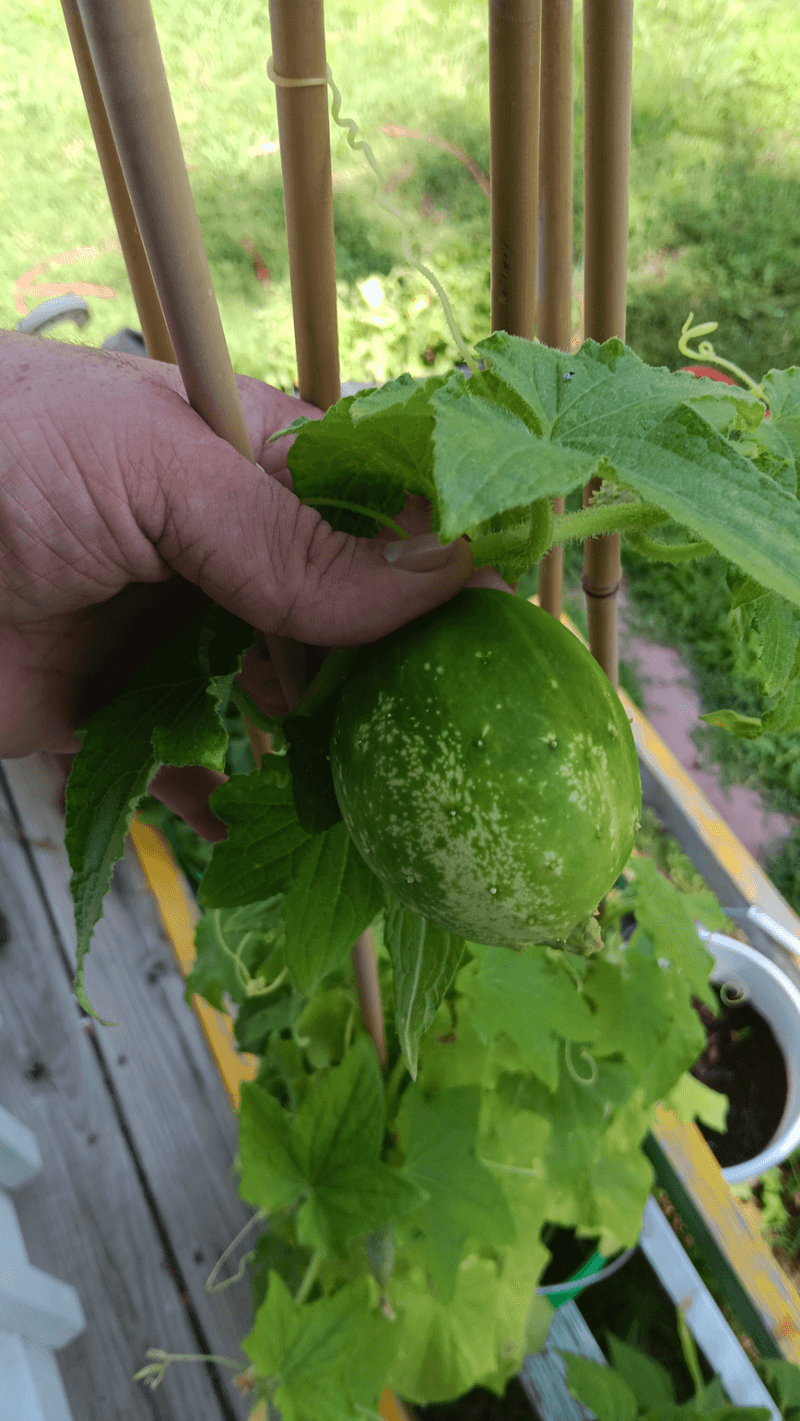
The moisture roller-coaster of drought followed by flooding creates stressed plants that develop bitter fruits. These green vegetables need steady, consistent moisture to maintain their sweet flavor profile.
One summer I got lazy with watering and only gave my garden attention when plants started wilting. The result? Every single cucumber tasted like aspirin!
Setting up a drip irrigation system or deep watering twice weekly (about 1-2 inches) helps maintain even soil moisture. Your taste buds will thank you when harvest time comes around.
3. Poor Soil Nutrition Creates Flavor Problems
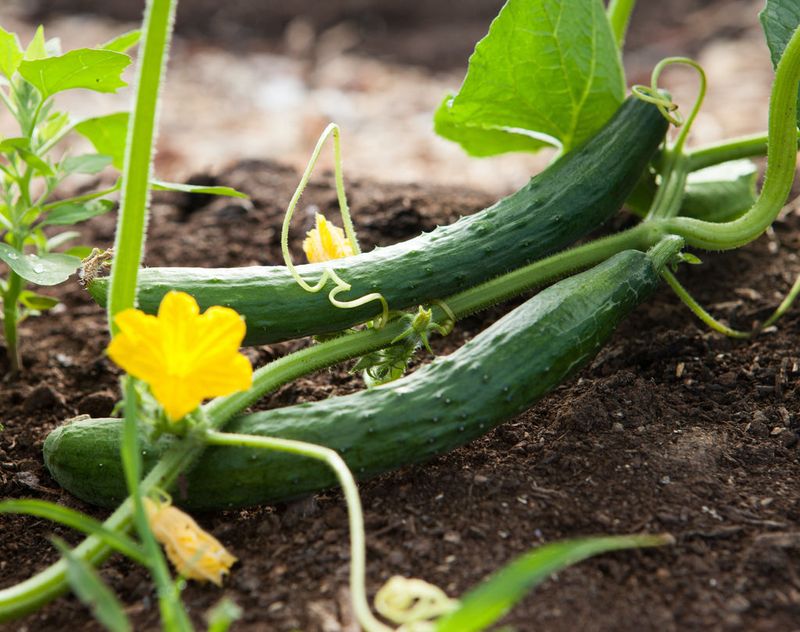
The foundation of sweet-tasting produce starts with properly balanced soil. When essential nutrients are missing or imbalanced, bitter flavors develop as plants struggle to grow properly.
Testing your garden soil before planting season reveals exactly what your ground needs. My first cucumber crop tasted terrible until I discovered my soil lacked calcium and had too much nitrogen.
Adding compost and appropriate amendments based on soil test results creates the perfect growing environment. Balanced fertility leads to sweeter, more flavorful cucumbers that make perfect additions to summer salads.
4. Waiting Too Long To Harvest
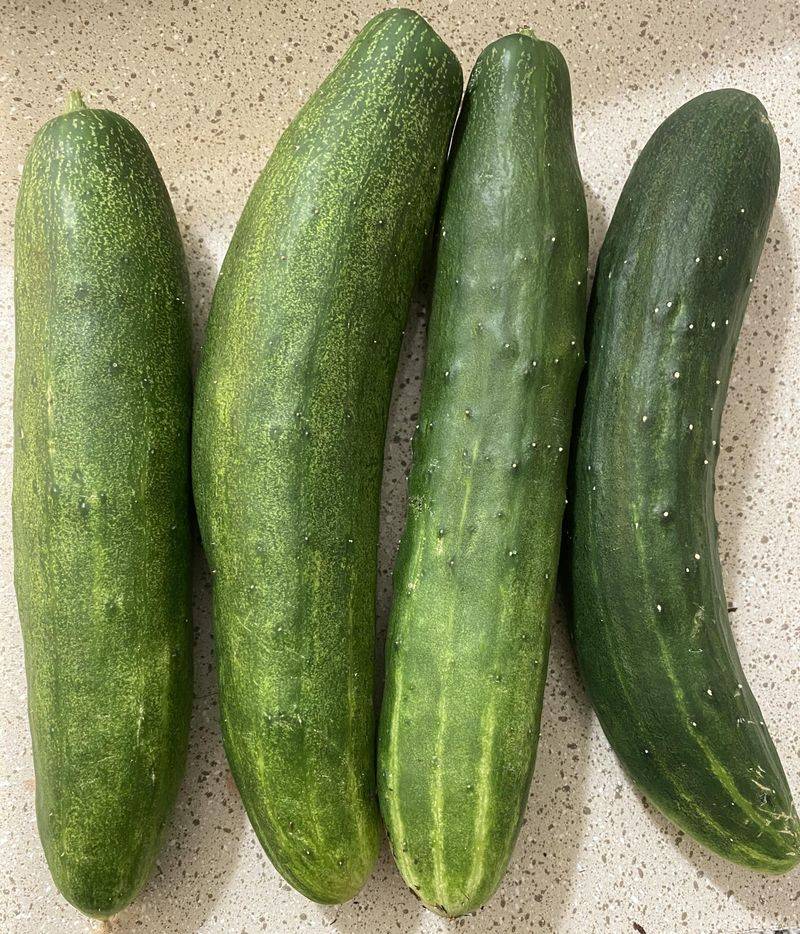
Mature cucumbers develop more bitter compounds naturally as they age on the vine. Many gardeners mistakenly think bigger is better, but oversized fruits often taste worse than their younger counterparts.
I once let several fruits grow to “impressive” sizes, hoping for blue-ribbon winners at the county fair. Instead, they were so bitter and seedy nobody wanted to eat them!
Picking cucumbers when they’re medium-sized and still have slight shine to their skin ensures optimal flavor. For most varieties, harvesting at 6-8 inches long gives the best taste experience.
5. Wrong Variety For Your Climate
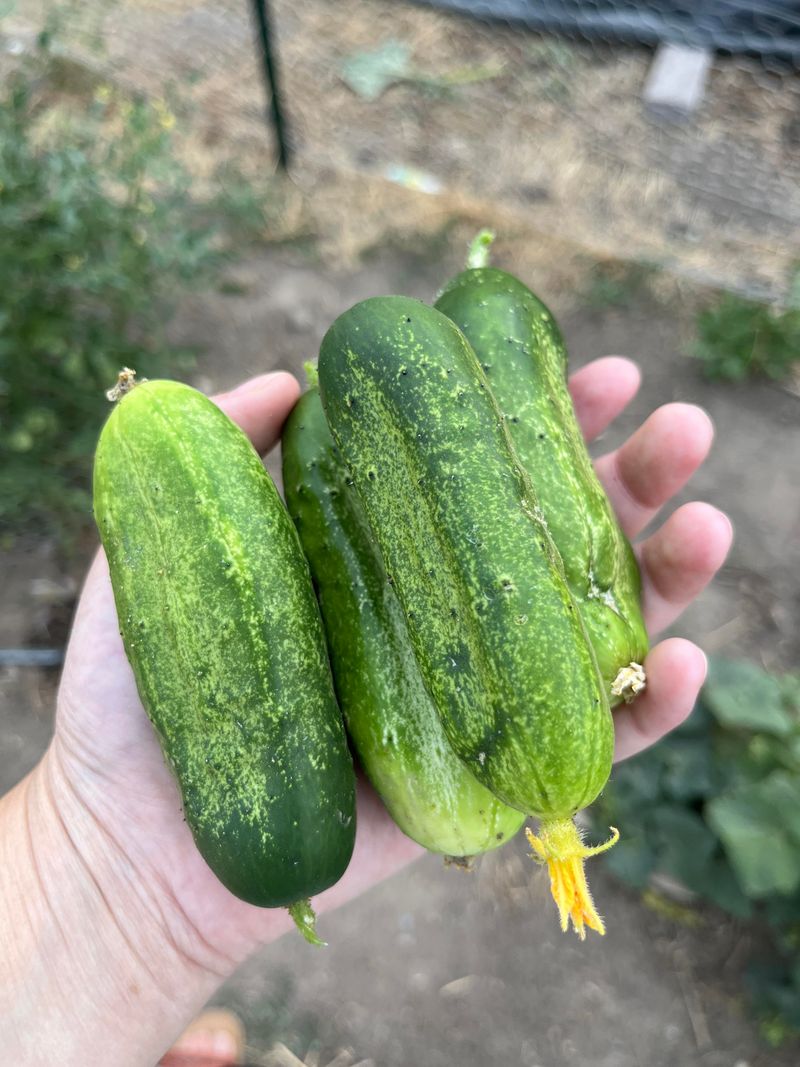
Some cucumber varieties simply perform better in certain growing conditions. Choosing types not suited for your specific climate can result in stressed plants that produce bitter fruits regardless of your care.
After three disappointing seasons with bitter produce, I switched to ‘Marketmore’ cucumbers, which are bred specifically for cooler climates like mine. The difference was remarkable!
Research varieties developed for your region before planting. Heat-tolerant options like ‘Ashley’ or ‘Armenian’ work well in southern gardens, while ‘Marketmore’ and ‘Northern Pickling’ thrive in cooler northern areas.
6. Pest Damage Triggers Bitterness
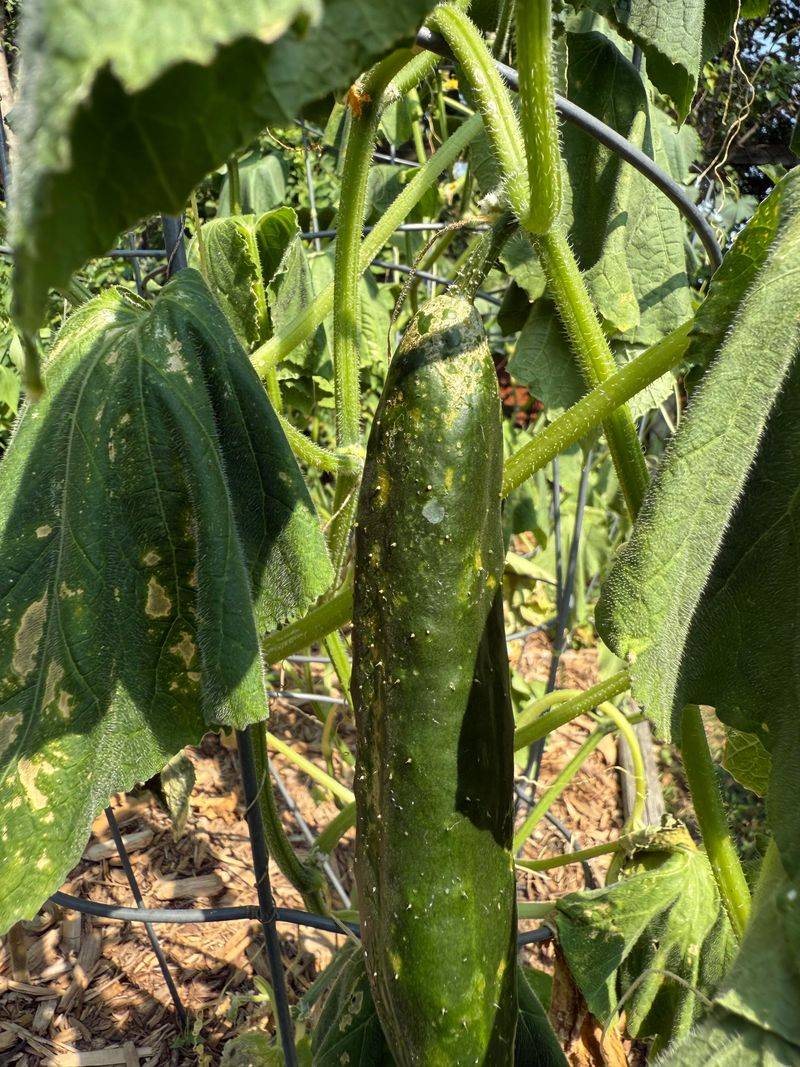
When insects attack cucumber plants, the natural defense mechanism kicks in, producing bitter-tasting compounds to deter further feeding. The plant essentially tries to protect itself by becoming unpalatable.
Spotting tiny cucumber beetles in my garden explained why half my harvest tasted terrible despite proper watering. These small yellow-striped pests can ruin an entire crop’s flavor.
Regular inspection of leaf undersides and using floating row covers early in the season helps prevent infestations. Introducing beneficial insects like ladybugs provides natural control without chemicals that might affect flavor.
7. How Crowded Plants Develop Flavor Issues
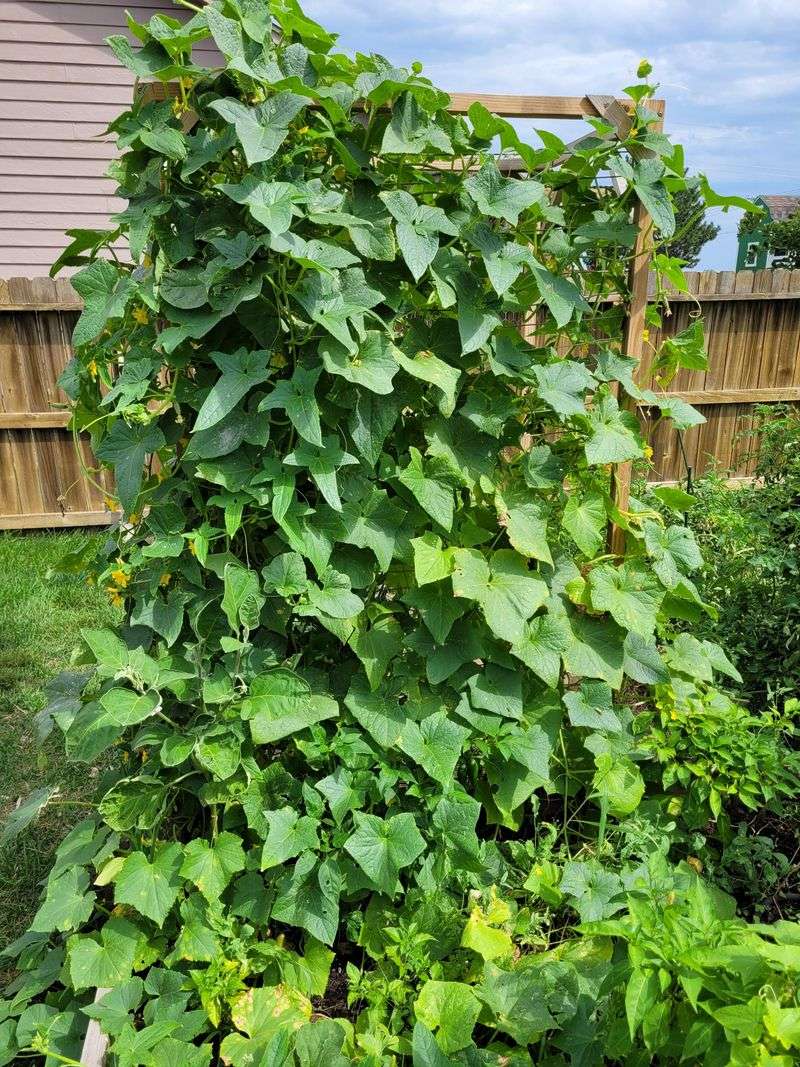
Giving vines enough room to breathe makes a tremendous difference in flavor. Crowded cucumber plants compete for nutrients, water, and sunlight, creating stressed conditions that lead to bitter fruit production.
My first attempt at growing cucumbers involved planting eight seedlings in a tiny raised bed. The tangled mess produced bitter, stunted fruits that nobody wanted to eat.
Spacing plants 12-18 inches apart in rows at least 3-4 feet apart allows proper air circulation and resource access. This simple spacing adjustment can transform your harvest from bitter disappointment to sweet success.
8. Genetic Factors You Can’t Control
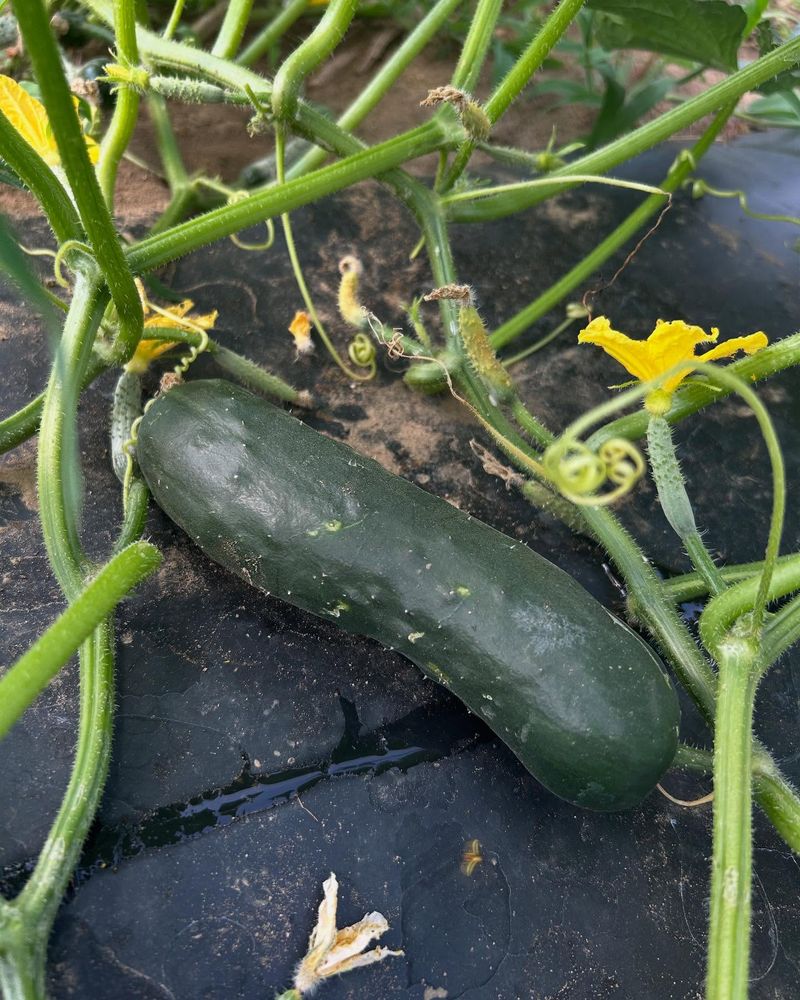
Some bitterness comes built into the cucumber’s DNA. Wild cucumbers naturally contain high levels of cucurbitacins as a defense against predators, and modern varieties still carry some of these genes.
Even with perfect care, occasional bitter fruits appear in my garden. I’ve learned this is normal genetic variation rather than a gardening failure on my part.
Choosing specially bred “burpless” varieties like ‘Sweet Success’ or ‘Tasty Green’ reduces the genetic tendency toward bitterness. These cultivars have been specifically developed to minimize the compounds that create that unpleasant flavor.
9. Rough Handling During Growth
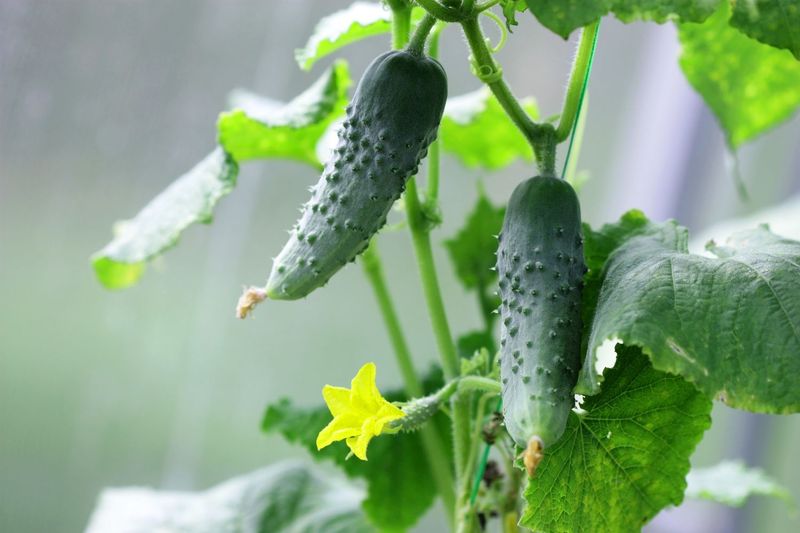
The way we interact with growing cucumber plants can trigger bitterness. Rough handling, excessive pruning, or damaging vines while harvesting creates stress that activates the plant’s bitter-producing defense mechanisms.
When training vines on my trellis last season, I accidentally broke several stems. Those plants produced noticeably more bitter fruits than the ones I handled gently.
Using soft plant ties instead of rough twine and harvesting with sharp scissors rather than pulling fruits helps minimize damage. Treating your plants gently pays off with sweeter harvests throughout the growing season.
10. Environmental Pollutants Affect Flavor
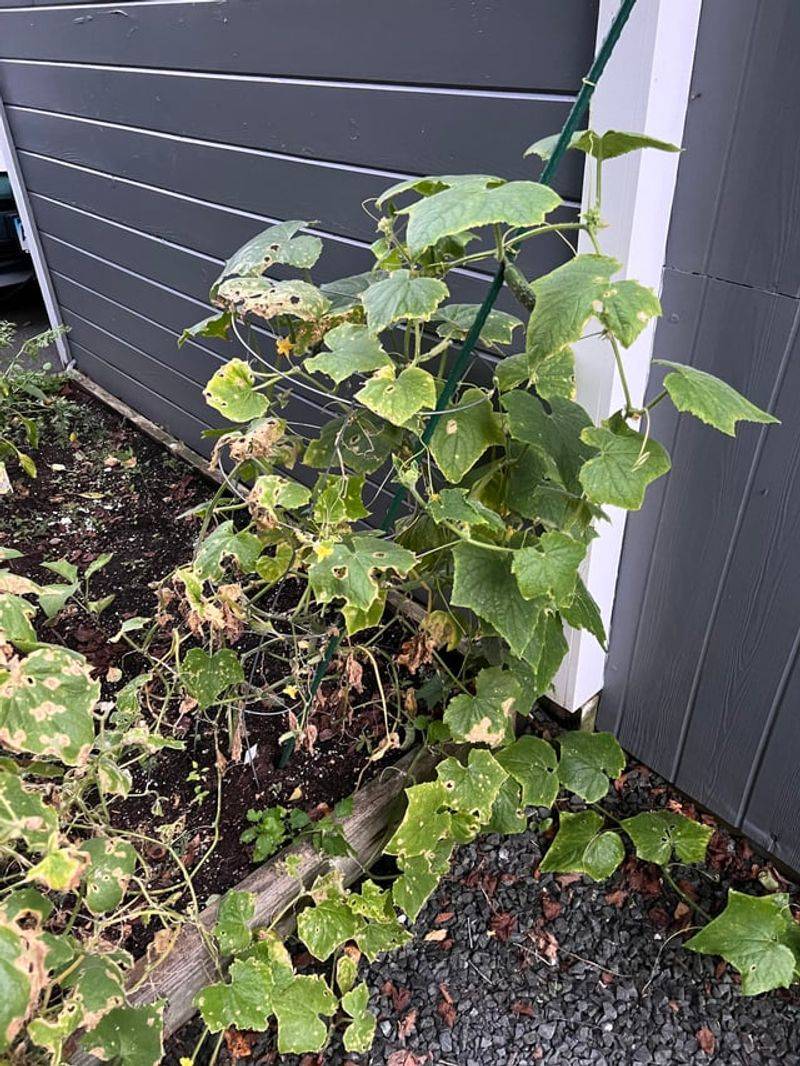
Surprising to many gardeners, environmental factors beyond your control can influence cucumber flavor. Air pollution, contaminated water, or nearby chemical use can all contribute to bitter-tasting produce.
My community garden plot near a busy road consistently produced more bitter cucumbers than my friend’s identical varieties grown in a rural setting with cleaner air.
Creating windbreaks with tall plants, using filtered water if your tap water contains chlorine, and positioning gardens away from roads or industrial areas when possible helps minimize these external influences on your cucumber’s flavor profile.

